Main Nerve Wracking Takeaways:
- Both nerve wracking and nerve racking are correct.
- Nerve-racking is generally the preferred spelling, but AP style calls for nerve-wracking.
- Nerve-racking is an adjective and describes something that causes stress or anxiety.
- As verbs, rack references anguish or pain, and wreck describe destruction or ruin.
- Stressful, worrisome, and frightening are synonyms for nerve-racking.
- The first recorded use of nerve-racking dates to the early 1800s.
A nerve-wracking or nerve-racking incident induces stress and anxiety. Both spellings are acceptable, but nerve-racking is typically preferred.
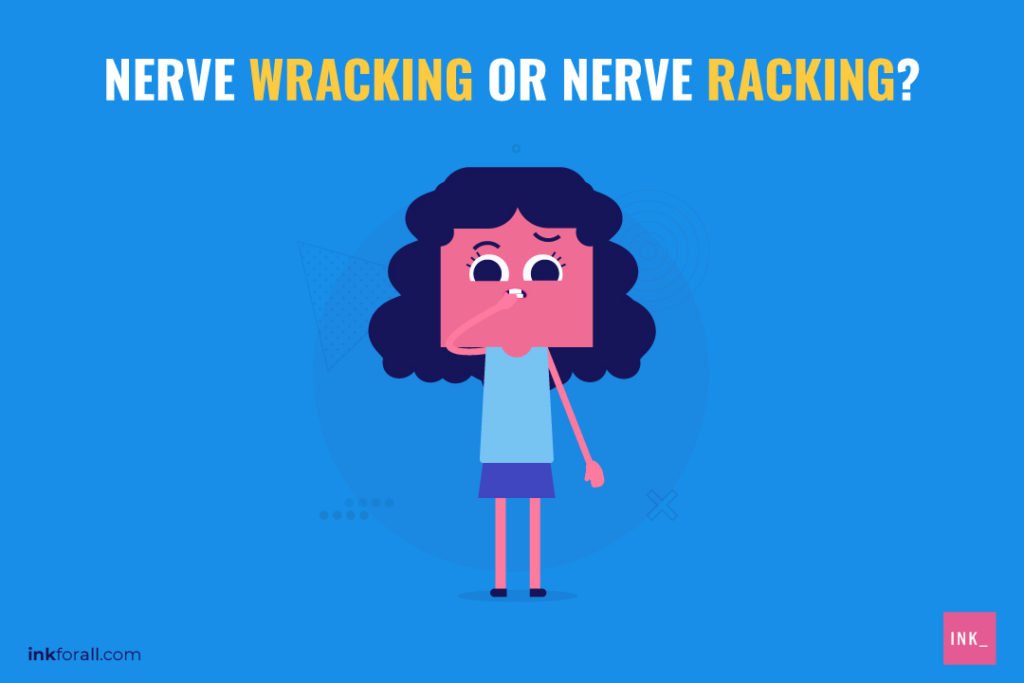

Is it Nerve Wracking or Racking?
The most correct and original way to spell this word is nerve-racking (no ‘w‘). Nerve-wracking is an accepted alternative spelling. However, some purists may consider this variant incorrect. Nerve-wrackingand nerve-racking are both found in American and British English content. Both adjectives describe something that makes you nervous. Or, something that is emotionally difficult and causes stress or anxiety.
Most grammar gurus prefer to spell nerve-racking without a ‘w.’ However, AP Style suggests using nerve-wracking instead. Technically, neither spelling is wrong.
How Do You Pronounce Nerve Racking?
Whether you’re writing or reading, always pronounce nerve-racking as nurv-rack-ing.
The ‘a’ is short, like in apple, not long like in rake.
Is Nerve-Racking Formal?
Is Nerve-Racking Formal?
No, nerve-racking is not considered a formal term. It’s a term commonly used to describe an object or situation that’s extremely irritating, annoying,or trying.
What is the Difference Between Rack and Wrack?
Rack has numerous definitions, one of which involves pain and anguish. This word is more figurative. Wrack describes ruin or destruction. This word is more literal. Similarly, both nerve-racking and nerve-wracking are correct, but nerve-racking (no ‘w’) is preferred. One reason nerve-racking became more popular is because it contains the verb rack, which describes a more figurative emotional state rather than a literal state of ruin.
What is a Nerve-Racking Person?
A nerve-racking person is someone who causes stress or discomfort when you spend time with them. You may feel this way about your boss, an ex, or an enemy. Nerve-racking typically describes a situation or event, though. You may consider someone nerve-racking, but you wouldn’t call them a nerve-racking person. Instead, you might say they have nerve-racking personality traits or describe your time with them as nerve-racking.
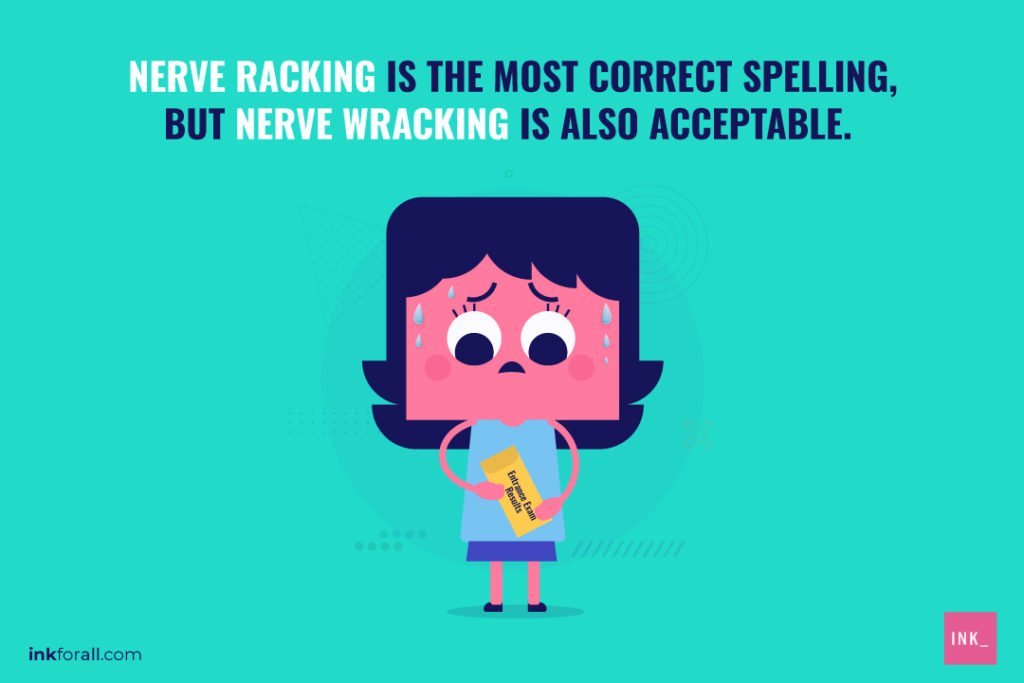

Here are some examples of nerve-racking in action:
Why is it called Nerve Wracking?
It is called nerve-wracking for several reasons. First, “wrack” (with a ‘w’) is an alternative spelling for “rack.” Since nerve-racking is the original spelling, it makes sense that an alternative spelling would be nerve-wracking (with a ‘w‘). What’s more, while both spellings are correct, some prefer nerve-wracking because of it’s overlap with the phrase “a nervous wreck.” While there is some overlap, it’s important to note that “wrack” and “wreck” are different words with different meanings.
What is Another Word for Nerve Wracking?
Nerve-racking is another word for nerve-wracking. If you are looking for synonyms, consider using a word such as stressful or worrisome.
Synonyms for nerve-racking:
- Stressful
- Worrisome
- Anxious
- Frightening
- Daunting
- Difficult
- Trying
- Tense
- Scary
- Disquieting
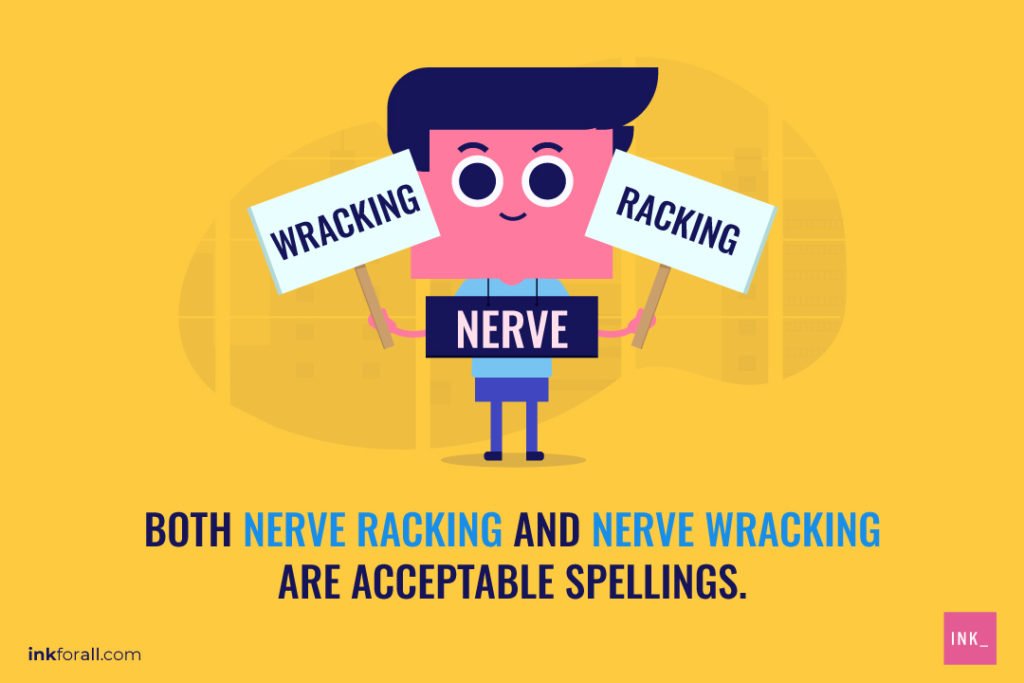

Where did the Term Nerve Wracking Come From?
Nerve-wracking, which was spelled nerve-racking, made an 1812 debut in a letter drafted by Shelley. The famous poet described the metropolis this way, explaining he was glad he was gone. In the early 20th century, nerve-racking appeared in numerous publications. The adjective found a home in advertisements, news stories, and books. There is also an association with the medieval torture device known as the rack.
Today, nerve-racking still appears in print publications and not just ones for professional purposes. The word is also used in casual conversations.
Some experts believe nerve-racking is the preferred spelling because of translation issues.
For example, depending on the region, German speakers may pronounce “wr” as “vr.”
Other experts believe the ‘w’ was always meant to be silent.
The bottom line: Don’t rack your brain or wreck your life debating whether to use nerve-wrackingor nerve-racking. Both options are correct unless you’re writing a piece that requires AP Style.
Try our Quiz! Promise, it’s not Nerve-Racking!
Nerve Wracking or Racking Question #1
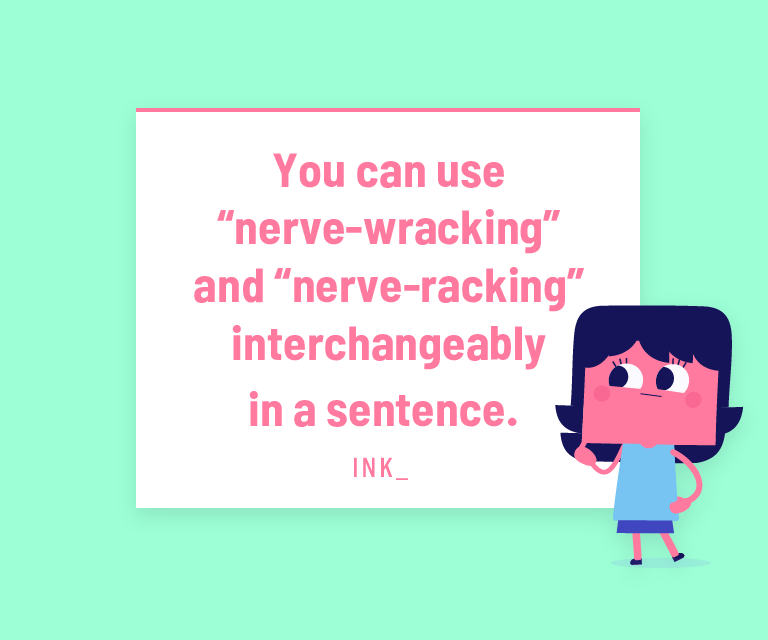

The answer is TRUE. Both spellings are acceptable.
Nerve-Wracking Question #2


The answer is C. Both “nerve-wracking” and “nerve-racking” are technically correct.
Nerve-Racking Question #3
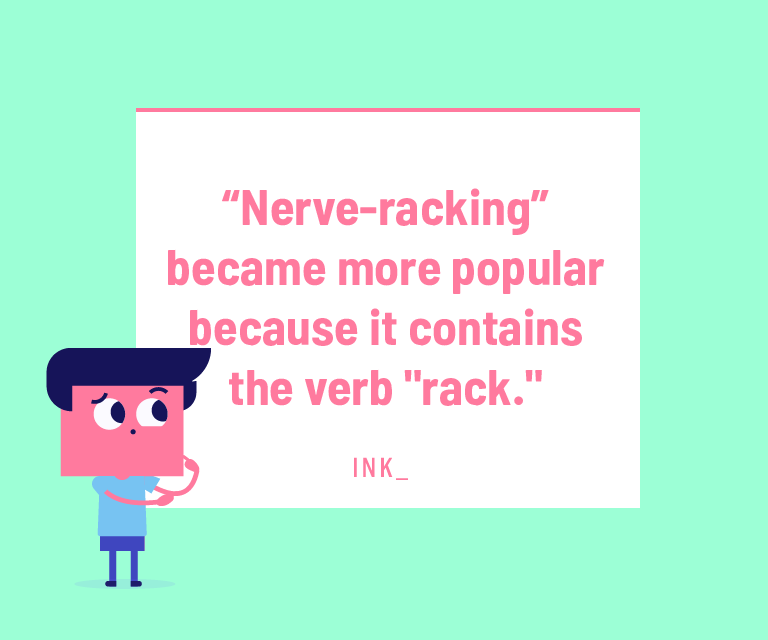

The answer is TRUE. “Rack” has numerous definitions, one of which involves pain and anguish.
Nerve-Racking Question #4
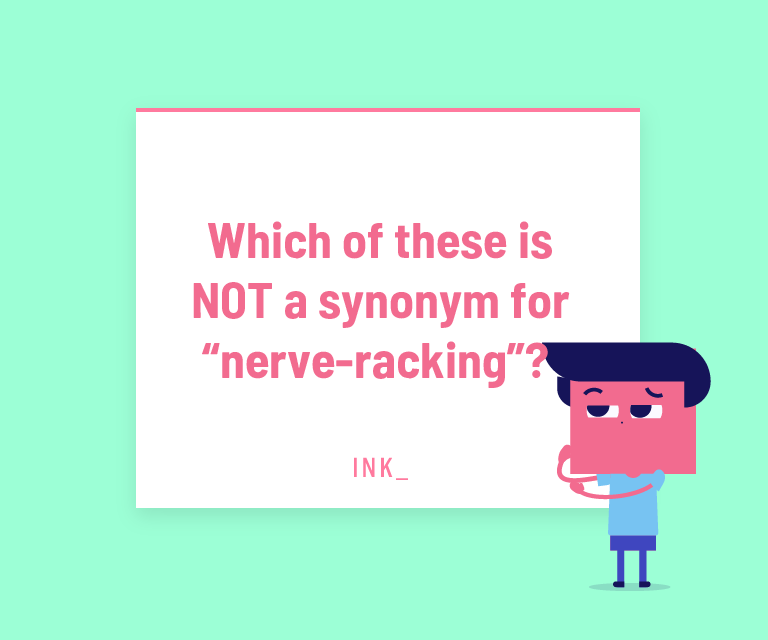

The answer is C. The word “relaxing” is the opposite of “nerve-racking”.
Nerve-Racking Question #5


The answer is B. In the letter, Shelley described the metropolis as "nerve-racking," explaining he was glad he was gone.







Comments (0)
Least Recent